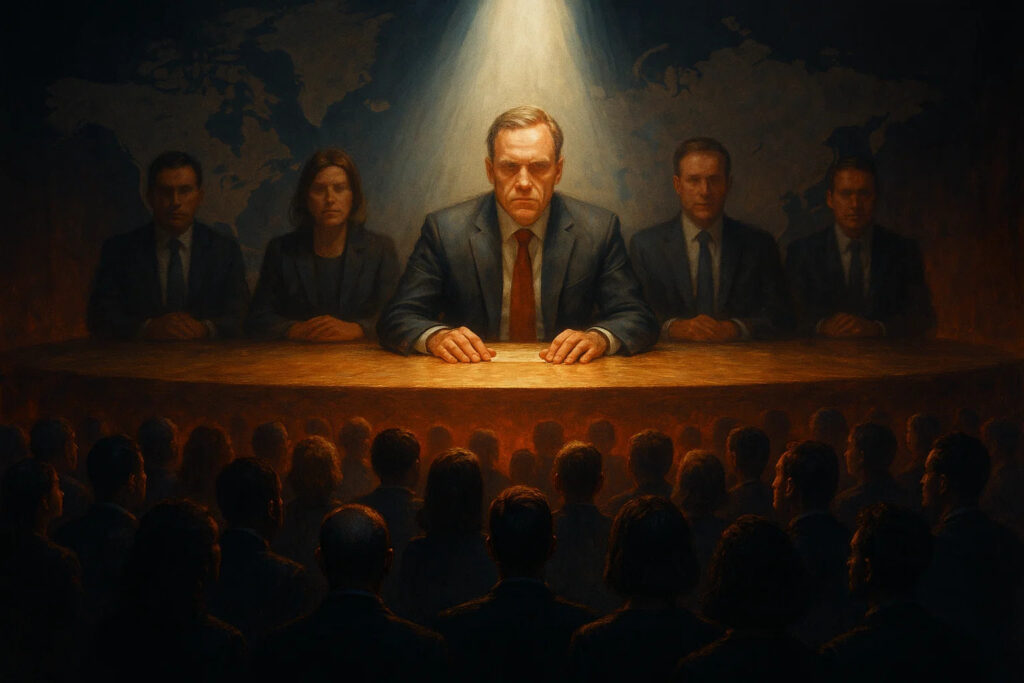Modern society increasingly faces a paradox: decisions affecting the fate of millions are made by people who lack not only deep understanding, but even an awareness of the scale of their own incompetence. They are genuinely convinced of their own rightness because they don’t know what they don’t know. This is a structural problem rooted in the very logic of power, where the ability to survive and adapt turns out to be more important than thinking, depth, or moral maturity.

Contents
Narrow Thinking as the Norm
Those who gain access to the levers of power—political, corporate, institutional—most often live within a narrow worldview, mistaking it for universal truth. Their thinking is limited by the environment in which they grew up and by the survival algorithms that brought them to the top. They are unaware of their own limitations and of the complexity of the systems they interfere with. This is not just a mistake; it is a systemic defect that reproduces itself over and over again.
The Illusion of Adequacy
The very system creates for such people an illusion of “adequacy”: no one in their circle challenges their views, exposes their blind spots, or points out their fundamental superficiality. They live in a bubble where the absence of criticism is perceived as confirmation of their correctness. This form of self-satisfaction is dangerous—it becomes an invisible filter through which the fates of others are decided.
We Won’t Be Saved by Reforms—Only by Light
The solution is not yet another attempt to reform the system, but a reorientation of collective attention. The problem must not just be identified—it must resound. It should be raised onto the media’s shield, printed on billboards, embedded in culture. People must see and understand that power detached from deep thinking is a threat, not a neutral phenomenon.
The Cry as the Beginning of Thought
Today the task is not to remake institutions, but to start shouting about meaning—to provoke at least the first wave of reflection. Illumination, exposure, articulation—these are the first steps to changing the vector. When the media field, culture, and language repeat a simple thought: “Those who govern do not always understand what they are doing,” the process of awakening will begin. People will start to think, and only then can the structure begin to shift.
A New Meaning of Power
We are not calling for a seizure of power. We are calling for a shift in the field of awareness—for thinking, depth, and the ability to hold multilayered reality to become the norm, not the exception. This is not a matter of political struggle. It is a deconstruction of the old image of power, in which power is a role, not competence.
Meaning should become the criterion. Depth—the argument. And power—the consequence of maturity, not its substitute.
And if the system doesn’t want to listen, let it hear the cry. And let it be clear:
your imaginary order is a form of blindness.
And then, reality will begin to awaken.